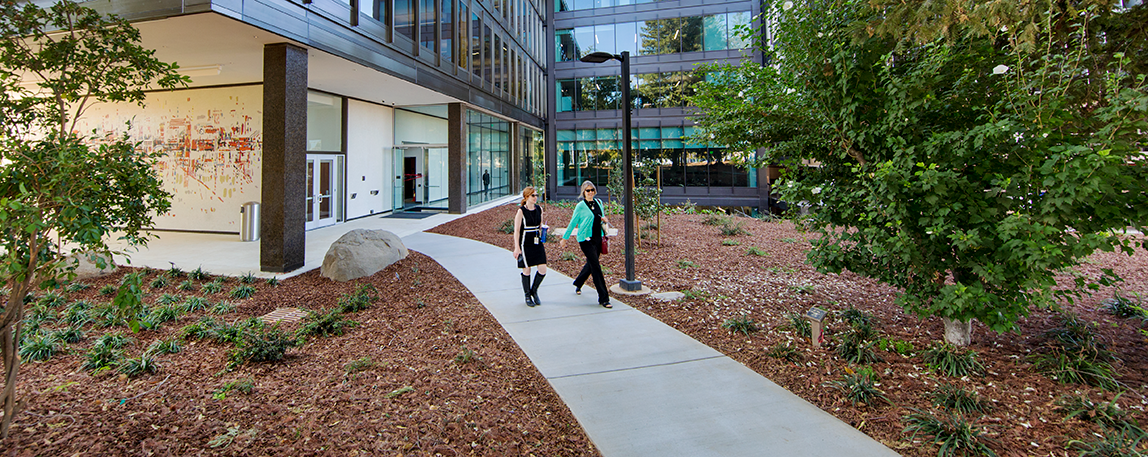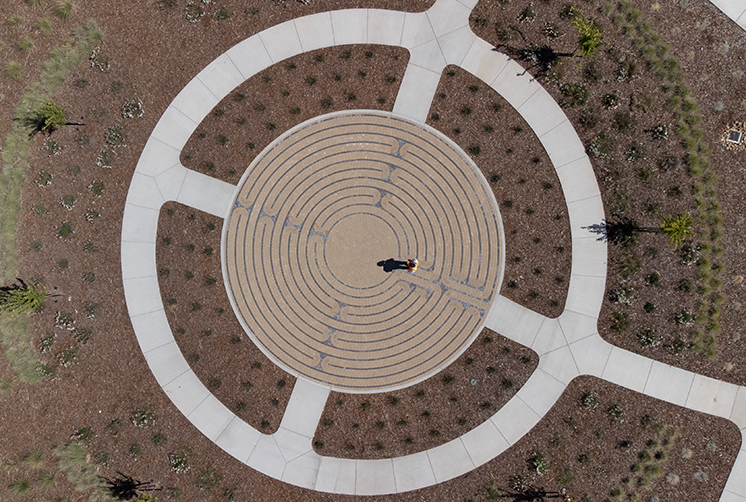Being in California, water conservation is at the forefront of many laws put into place by the State. As Landscape Architects, CALA is constantly trying to find the balance of making spaces aesthetically pleasing, while ensuring compliance with these laws. It can be a challenge, especially on existing projects, which is why having a dedicated in-house Irrigation Auditor, like myself, is essential. As an irrigation auditor, I need to keep track of new legislation that directly affects our clients projects. Currently there are two laws that are important to talk about – AB1572 and AB1881.
AB1572 was signed into law at the end of 2023 requiring the reduction of non-functional turf (“NFT”) throughout the state.The new law bans irrigation of NFT with potable water on CII properties, including: schools, HOAs, industrial and institutional sites, and common interest developments. What is considered NFT? It would be those narrow turf plantings in between the sidewalk and street, or at the entrances to a commercial building or school.
When are you required to have this done by?
- January 2027 – public properties (excluding disadvantaged communities).
- January 2028 – commercial properties.
- January 2029 – homeowner associations and similar common areas.
- January 2031 (or when funding is available) – public properties located in disadvantaged communities.
- June 30, 2030 – self-certification of compliance for all CII Properties (commercial, industrial, institutional, municipal properties over 5,000 square feet of irrigated area).

City of Sacramento DOT Demonstration Garden – replacing non-functional turf areas with water wise native plantings and grass alternatives like “Kurapia” creating a space to educate and inspire the public
AB 1881, the Model Water Efficient Landscape Ordinance (MWELO) was created by the State Water Resources Board to better conserve the use of water used in landscape irrigation and make sure that newly installed and renovated irrigation systems are more efficient.
Irrigation Audits are only a small but essential part of these ordinances and should be performed by a Certified Landscape Irrigation Auditor (CLIA) that is not involved with the design or installation of the irrigation system. So what exactly is an irrigation audit? It’s a guideline for the owner or municipality on how to program the controller and maintain the project. The audit includes a review of every zone, percent irrigation efficiency, and includes recommendations to repair or replace faulty or defective irrigation components and to optimize the performance of the irrigation system, and a detailed Irrigation and Maintenance Schedule.

Catch cups are used on spray and rotor zones to check the irrigation efficiency and precipitation rate which are then included in the Irrigation Schedule.
Whether you want to get a head start on the reduction of your non-functional turf areas, or aren’t sure if your current irrigation system is efficient enough to meet requirements, call Shawn! He’d be happy to help you figure it out! 916.985.4366
—-
Shawn Sanflippo is CALA’s certified arborist, construction manager, and irrigation auditor. His construction expertise coupled with his certifications create a unique perspective of practical solutions of water conservation. He has performed numerous irrigation audits for various cities and school districts which have helped them increase their irrigation efficiency and save water.

